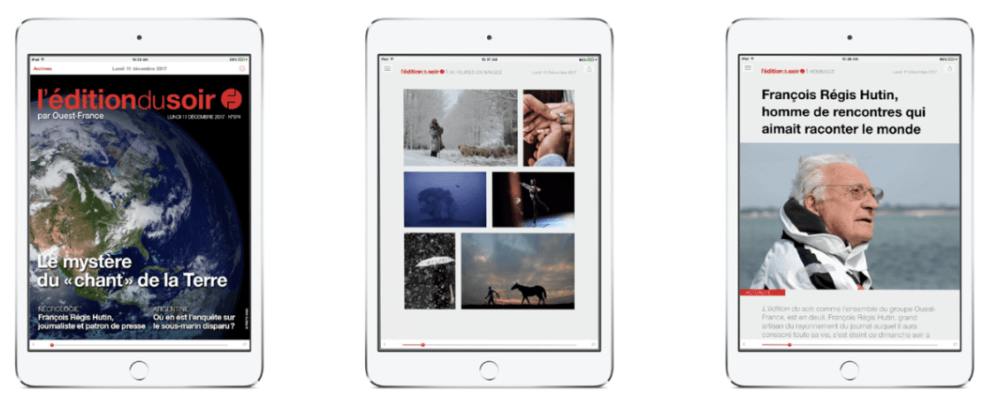European publishers seeing success with subscription strategies
This week a study on publishers across Europe was published by Reuters, with a focus on how 8 specific titles have found success with reader revenue strategies. This report serves as a follow up to one published in 2018, in which not all publishers had embraced reader revenue strategies, so it is interesting to see this has since changed.
We know European publishers have led the charge in business model transformations, so today we are sharing some of the success factors in this shift to subscription strategies.
Pairing quality journalism with premium products
For reader revenue strategies to truly work, readers must feel both the journalism and the product experience are worth paying for. As Mathias Douchet, Director of Product at The Telegraph, recently shared with our Future of News community, quality journalism is what publishers have had as a key focus for 100+ years. What has changed over those years is the means of distribution, with a multitude of different ways readers can consume journalism across digital platforms. In the early days of the digital revolution, people became used to the idea that ‘the internet is (and should be) free‘, however with the success of other media platforms people are picking up a habit for paying for online content more and more.
If you think about Amazon Prime, Netflix, Spotify, people are paying for media. Clearly there are digital propositions in the marketplace that people are willing to pay for. It’s up to us to make our proposition one that people are willing to pay for. That’s the game, isn’t it?
James Mitchinson, Editor at The Yorkshire Post
To help encourage readers to pay for quality journalism, publishers need to offer premium products that are clearly different than the free web experience. In the study, Ouest-France reports having five different products for their digital subscribers: the digital edition of their print newspapers, an evening digital-only edition, 30-40% of online articles behind a paywall, vast digital archives, and a new digital sports newspaper.
We wanted to get out of the digital-for-free. We absolutely did not want to tell the customers, ‘Look, the digital is not worth much, and it’s free’. We really did not want this. And, moreover, the digital journalists would not have appreciated this.
Fabrice Bazard, director of digital activities at Ouest-France
At Twipe we are proud to be part of Ouest-France’s digital success, as we have been their digital edition partner for many years. Ouest-France’s print subscribers are charged an additional €3 per month to access these digital products. The digital-only evening edition, L’Edition du Soir, has been a crucial product in reducing subscriber churn rate, so we are excited to see more publishers across Europe and even the US adopt new evening digital-only editions.

Focus on habit formation
With advertising revenues declining, European publishers have had to move away from prioritising reach and pageviews above all to a focus on loyal readers. Media analyst Ken Doctor calls these loyal readers your “7 percenters” as the industry average is that 7% of readers drive 50% of monthly traffic.
This is one of the reasons that the topic of habit formation has become so important in the news industry. Now publishers are looking for ways to increase reader frequency and develop long lasting reader relationships. Habit formation is both important for converting new subscribers, but also for retaining these subscribers. Research from the Medill Local News Initiative at Northwestern shows that frequency is the biggest predictor in retention.
What you’re talking about here is really a paradigm shift. … ‘My customer is the consumer, and that’s where I get my revenue,’ as opposed to ‘my customer is the advertiser and I’m leveraging my readers to these advertisers.’ It’s a big shift, a huge kind of shift in mission.
Tom Rosenstiel, Executive Director of the American Press Institute
We have focused our own research heavily on habit formation, through interviews with industry leaders, gathering our Future of News community to discuss together, and technology projects with publishers. From this we have been able to develop some best practices for habit formation, as well as a canvas for developing news products with habit formation in mind. We will be sharing some of our learnings from a recent collaboration with Schibsted during the ONA20 Everywhere event as well (let us know if you’ll be watching so we can say hi!)
More sustainable business model in long term
Research for this report was conducted between December 2019 and March 2020, meaning just before the world turned upside down. However the researchers followed up in August to see how the COVID crisis had impacted the publishers. During the early months of the pandemic in Europe, news organisations saw unprecedented digital traffic. This was offset though by the sharp drop in advertising, event revenues, and print deliveries. Some of the news organisations had also been confronted with furloughs and layoffs.
However this crisis has made the shift to reader revenues even more important, as it has become a more clear sustainable business model for the future. For areas like the US that have been a bit behind European subscription strategies, it will be crucial to learn from their examples and shorten the transition time. It is interesting as well to see that previous research from Reuters indicates there’s an untapped potential in the US, as newspapers are valued more by American readers than by readers in France and the UK, two of the studied countries in this report. There’s clearly still room to grow for American publishers.
Other Blog Posts

Stay on top of the game
Join our community of industry leaders. Get insights, best practices, case studies, and access to our events.
"(Required)" indicates required fields


